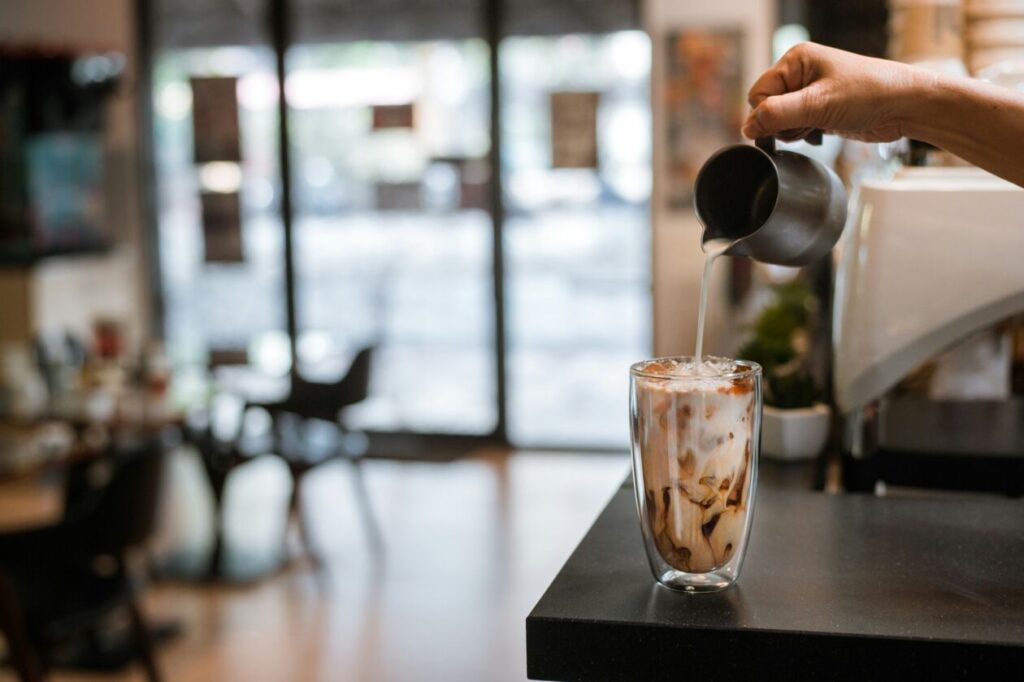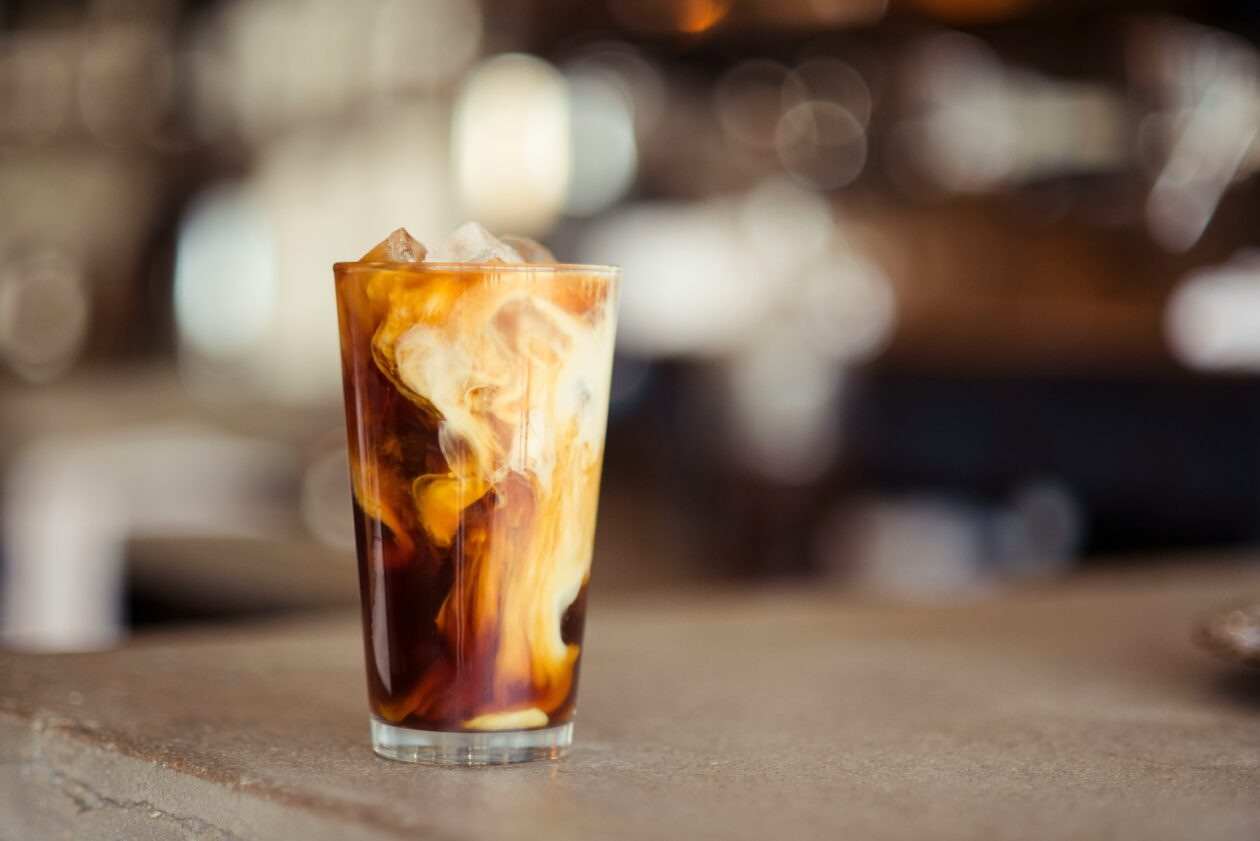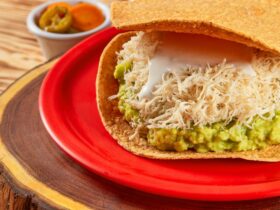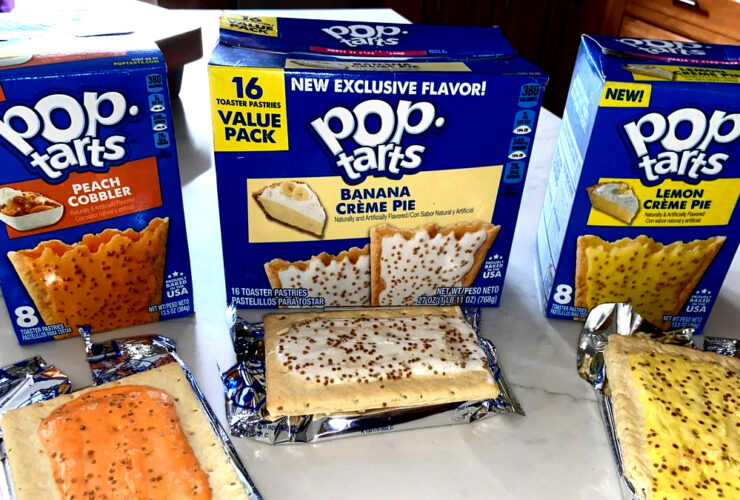Introduction
Across the world, iced lattes have become a popular choice for coffee enthusiasts, offering a refreshing departure from conventional caffeinated drinks. Renowned for their delightful flavors, velvety texture, and enticing aroma, iced lattes have garnered widespread acclaim, particularly during warmer seasons. Yet, amidst their undeniable allure, a pertinent question persists: “Is iced latte good for weight loss?
In this investigation, we examine the subtleties of iced lattes and their possible influence on attempts to manage weight. These cold-brewed coffee treats hit the spot and give you a much-needed energy boost but for those trying to lose weight or keep it off, knowing their nutritional makeup and how it fits into a balanced diet is crucial. Examining the components, calorie count, and physiological impacts of iced lattes, we hope to shed light on whether they should be considered an asset or an impediment to weight loss efforts.
As we set out on this exploratory expedition, it becomes apparent that deciphering the intricacies of iced lattes necessitates evaluating their nutritional composition and considering how they fit into larger dietary regimens and lifestyle decisions. We aim to give readers the knowledge to make well-informed decisions regarding including iced lattes in their wellness routines by critically analyzing the available evidence and providing helpful insights. Come along as we explore the subtleties of iced lattes and learn the real story behind their significance in the quest for a better, healthier lifestyle.
Understanding Iced Lattes
Famous for their cool combination of milk and espresso over ice, iced lattes are a delicious substitute for regular hot coffee. Iced lattes, which usually include espresso shots and cold milk, are creamy and smooth with a hint of coffee taste. An iced latte’s main ingredients are milk, ice cubes, freshly brewed espresso, and any additional flavorings or sweets that are desired. Coffee lovers may customize their iced lattes to fit certain dietary requirements and taste preferences by starting with this straightforward yet adaptable recipe.
Iced lattes present a wealth of customizing options for you to consider. One can customize almost anything, from the type of milk to the addition of flavor syrups or other sweets. Almond milk, soy milk, oat milk, and coconut milk are among the milk substitutes that offer dairy-free options with different degrees of smoothness and taste characteristics.
Furthermore, flavored syrups such as mocha, vanilla, caramel, and hazelnut can enhance the flavor of an iced latte by contributing a subtle sweetness and depth to the drink. Sugar-free syrups or natural sweeteners like stevia provide a guilt-free option to boost flavor without sacrificing health objectives for people watching their sugar intake.
Iced lattes are distinguished from other coffee drinks, such as frappuccinos or cold brews, by their well-balanced espresso intensity and milk smoothness. Although long steeping times give cold brew coffee its smooth, concentrated flavor, iced lattes provide a more diluted, but no less enjoyable, cup of coffee.
For those who like a milder, somewhat sweeter cup of coffee, an iced latte is a great option because the milk in it gives it a creamy texture that balances the strong flavor of the espresso. Coffee fans looking for a cool, refreshing beverage alternative all year round are drawn to the iced latte because of its adaptability, customizability, and pleasant flavor.
Examining the Weight Loss Potential

Let’s go right to the point: Are iced lattes a calorie-laden hindrance to weight loss efforts, or may they help? Although the creamy appeal of these drinks may cause some worry, several criteria, including portion quantity, ingredient choice, and overall nutritional balance, will determine how beneficial they are for losing weight.
Although a decadent iced latte made with whole milk and sweet syrups could make you feel guilty, a well-made version can help you lose weight. Choosing sugar-free flavorings and skim milk or plant-based substitutes will help you cut calories while still fulfilling your demands for creamy coffee.
In the end, attention and moderation are crucial. Combining iced lattes with a healthy diet, wholesome meals, and frequent exercise helps balance indulgence and well-being. People can successfully traverse the world of iced lattes while adhering to their weight loss plan by making educated decisions and mindfully enjoying each drink.
Delving into the Nutritional Profile of Iced Lattes

When evaluating iced lattes’ potential for weight loss, it’s important to comprehend their nutritional makeup. Although the combination of coffee and creaminess in these drinks is excellent, their calories vary greatly according to the ingredients and customization.
Analyzing Caloric Content and Nutrition Facts
Approximately 130 calories, 5.1 grams of total fat, and 3.2 grams of saturated fat are found in a normal 16-ounce serving of iced lattes. These figures could, however, differ depending on things like the kind of milk used and any other flavorings or sweeteners. Lower-calorie options, such as skim milk or sugar-free syrups, can assist in controlling calorie intake while still allowing one to enjoy the creamy perfection of an iced latte for those watching their intake.
Comparing Milk Options for Nutritional Benefits
The nutrient composition of an iced latte is greatly influenced by the milk used. For example, whole milk gives a dish more richness but also has more calories and fat—150 calories per 8-ounce portion. On the other hand, skim milk provides a lower calorie and saturated fat choice at just 80. With calorie counts per 8-ounce serving that range from 30 to 110, almond milk and soy milk offer dairy-free substitutes that are appropriate for those with certain dietary needs or preferences.
Identifying Hidden Calories and Sugar
Commercially made iced lattes may look harmless, but they might contain hidden sources of sugar and calories. Specialty additions, whipped cream toppers, and flavor syrups can easily raise the calorie content of a drink that would otherwise be moderate. By carefully reading ingredient lists and nutritional data, customers can make educated decisions and prevent inadvertently ingesting excessive sugar and calories in their iced lattes.
Delving into the Caffeine Content: How Does It Compare to Cold Brew?
It’s critical to comprehend not just the calories and fat content of iced lattes but also their caffeine content. The average 16-ounce serving of an iced latte has about 166 milligrams of caffeine. The kind of coffee beans used and the brewing technique, for example, can affect the amount of caffeine in this beverage.
In contrast, because of its longer steeping duration and higher coffee-to-water ratio, cold brew coffee typically has a higher caffeine concentration. For this reason, those who are managing their caffeine intake can prefer an iced latte for a gentler choice without sacrificing flavor, while others who are looking for a caffeine boost might choose cold brew coffee.
People can make decisions that are in line with their dietary objectives and tastes by taking into account these nutritional factors and contrasting them with other coffee options, such as cold brew. A healthy lifestyle and weight management journey are supported by moderation and conscious consumption, regardless of whether you want to indulge in a creamy iced coffee or go for a lower-calorie option.
Examining the Role of Iced Lattes in Weight Loss

Caffeine, a major ingredient in these popular drinks, plays a crucial role when analyzing the effect of iced lattes on weight loss. Given its well-known effects on metabolism and fat burning, caffeine may be a useful friend in the fight against weight gain. With their blend of espresso and milk, iced lattes provide a tasty and practical way to add caffeine to one’s diet. It’s important to remember, though, that each person’s experience with caffeine’s ability to help with weight reduction may differ depending on their unique metabolism and tolerance levels.
When including iced lattes into a weight loss program, portion control, and intake must be approached with awareness. Although excessive caffeine consumption or indulging in calorie-dense iced lattes can counteract any possible benefits, caffeine may have metabolic benefits. Iced lattes can complement a weight loss plan rather than interfere with it by limiting the amount of sugars or flavorings added, selecting low-calorie milk options, and choosing smaller serving sizes.
It’s important to dispel some myths about coffee drinking to comprehend how it affects weight management. Contrary to popular assumption, coffee use in moderation does not automatically hinder attempts to lose weight. Iced lattes offer a tasty and fulfilling beverage alternative without impeding weight loss efforts when ingested with a healthy lifestyle and balanced diet. Through a nuanced comprehension of caffeine’s effects and moderation, people can leverage the potential advantages of iced lattes while pursuing their weight loss objectives.
Beyond Weight Loss: Additional Health Considerations
Examining the nutritional composition of iced lattes demonstrates that milk, the main component of these well-liked drinks, makes a substantial contribution. Beyond helping with weight management, milk enhances the mixture with important nutrients like calcium and protein. Protein promotes muscle growth and repair, whereas calcium is essential for maintaining bone health and muscular function. People can enhance their general well-being and increase their nutrient intake by adding milk-based iced lattes to their diet.
In addition to their nutritional value, iced lattes can provide psychological advantages that enhance general health and well-being. Enjoying a tasty and fulfilling beverage, such as an iced latte, can make you happy, improving your mood and lowering your stress levels. These psychological impacts can positively affect mental health by offering a break from the daily grind and an opportunity for enjoyment and relaxation.
It’s crucial to understand that iced lattes should be considered a small component of a larger strategy for well-being and health. They can have positive psychological and nutritional effects but should be something other than a healthy diet and frequent exercise. To achieve and sustain optimal health, iced lattes should be a part of a healthy lifestyle that includes a range of nutrient-rich foods and regular exercise. People can promote their general health and well-being while fully enjoying the pleasures of iced lattes by finding a balance between moderation and indulgence.
Practical Tips and Recommendations
Making informed choices is key when it comes to enjoying iced lattes while aiming for weight loss. Here are some practical strategies to help you navigate your coffee indulgence while staying on track with your goals:
- Mindful Selection of Ingredients: Opt for healthier options when ordering or preparing your iced latte. Choose sugar-free syrups or flavorings to minimize added sugars, which can contribute to excess calories. Additionally, consider using lower-fat alternatives such as almond or skim milk to reduce overall calorie intake while still enjoying the creamy texture of your favorite beverage.
- Practice Moderation: While iced lattes can be a delicious treat, consuming them in moderation is important. Be mindful of portion sizes and avoid oversized servings, which can quickly increase calories. Enjoying an iced latte as an occasional indulgence rather than a daily habit can help prevent excessive calorie intake and support your weight loss efforts.
- Incorporate Into a Balanced Diet: Instead of viewing iced lattes as a hindrance to your weight loss journey, consider integrating them into a balanced diet plan. Treat yourself to an iced latte as a reward for sticking to your healthy eating habits. By aligning your coffee consumption with your overall dietary goals, you can enjoy the pleasure of an iced latte while progressing toward your desired weight.
By following these practical tips and recommendations, you can continue to savor the delightful flavors of iced lattes while working towards your weight loss goals. With mindful ingredient selection, moderation, and integration into a balanced diet, you can enjoy your favorite coffee beverage guilt-free and stay on track toward achieving a healthier lifestyle.
Homemade Iced Latte Recipes: Low-Calorie Options and DIY Tips
Want to savor the cool flavor of an iced latte without having to worry about it interfering with your efforts to lose weight? The ideal answer is to make your homemade iced lattes, which let you tailor your drink to your calorie and dietary requirements. You can create an iced latte that is both tasty and fulfilling while also supporting your health and wellness journey by using low-calorie ingredients and according to easy DIY instructions.
Making your iced lattes at home is a great way to manage how much coffee you drink and customize it to meet your dietary requirements. You can cut the calorie count of your favorite caffeinated beverage dramatically by substituting low-calorie ingredients for conventional ones like milk and sweets. A range of dietary requirements can be accommodated by homemade iced lattes, regardless of whether you’re on a strict diet or just trying to make healthier choices.
It’s not as hard as you would think to make an iced latte at home with fewer calories. Make a potent cup of coffee or espresso first, using your favorite brewing technique. After that, either let the coffee cool to room temperature or chill it in the refrigerator. When the coffee cools, pour it into a large glass with a generous topping of ice.
Instead of using regular dairy milk, use unsweetened almond milk or other plant-based milk substitutes for a low-calorie variation. Pour in a small amount of the milk of your choice and give it a gentle stir. Use a flavored syrup or zero-calorie sweetener, if preferred, to improve the flavor without consuming additional calories. To make the ideal low-calorie iced latte, feel free to experiment with different flavor variations like vanilla, caramel, or hazelnut.
There are countless options available when it comes to making your iced latte recipes. To fit your dietary restrictions and taste preferences:
- Get creative with flavor variations and customization possibilities.
- Try experimenting with other milk varieties, like oat or coconut milk, to find interesting flavor and texture combinations.
- For further complexity and depth, try adding natural flavorings like extracts, cocoa powder, or cinnamon.
- Consider using stevia or monk fruit, two zero-calorie sweeteners, if you’re yearning for a little sweetness. You may create a customized iced latte recipe that fulfills your cravings and aids in your weight loss efforts by embracing experimentation and creativity.
In conclusion, homemade iced latte recipes provide a tasty and adaptable substitute for store-purchased drinks, enabling you to savor the cool flavor of an iced latte without going overboard on calories. You may make a delightful drink that supports your wellness and health objectives by using low-calorie ingredients and a few easy DIY tricks. Explore the limitless possibilities of creating custom-made iced lattes in the kitchen that fit your unique dietary requirements and taste preferences.
Is Iced Latte Good for Weight Loss?
A. Short Answer: While iced lattes can be a refreshing treat, they may not directly contribute to weight loss due to their calorie content.
B. In-Depth Analysis:
Regarding weight loss, the key factors to consider are calorie intake and expenditure. Iced lattes typically contain espresso, milk, and sometimes sweeteners or flavorings, contributing to their calorie content. A 16-ounce iced latte made with whole milk can have around 200 calories or more, depending on the specific ingredients and serving size.
While caffeine, found in espresso, can boost metabolism and increase fat burning, the overall calorie content of the drink outweighs any potential benefits in terms of weight loss. Additionally, the milk used in lattes adds calories and may contain saturated fats, depending on the type of milk used.
However, it’s essential to consider the context in which iced lattes are consumed. They can fit into a weight loss plan if enjoyed occasionally and as part of a balanced diet. Opting for lower-calorie milk alternatives such as almond milk or choosing sugar-free syrups can help reduce the calorie content of the drink. Additionally, practicing portion control and mindful consumption can help prevent overindulgence and support weight management goals.
In summary, while iced lattes may not be inherently conducive to weight loss due to their calorie content, they can still be enjoyed as part of a balanced diet. Making informed choices, such as selecting lower-calorie ingredients and practicing moderation, can help mitigate their impact on overall calorie intake. Ultimately, it’s essential to consider the general dietary context and lifestyle factors when incorporating iced lattes into a weight loss regimen.
FAQs About Iced Lattes and Weight Loss
Is an iced latte good for diet?
While iced lattes can be a tasty treat, they may need to align with certain diet plans due to their calorie content. However, modifications such as low-fat milk or sugar-free syrups can help reduce calorie intake.
Can I drink lattes and still lose weight?
Yes, you can still enjoy lattes while aiming to lose weight. However, it’s essential to be mindful of portion sizes and ingredients to avoid consuming excess calories. Opting for lighter options like almond milk and limiting sweeteners can support weight loss efforts.
Is iced coffee okay for weight loss?
Iced coffee can be part of a weight loss plan, especially when consumed without added sugars or cream. Black iced coffee is low in calories and can boost caffeine without significantly impacting calorie intake.
Can I drink coffee and still lose weight?
Yes, coffee can be included in a weight loss regimen, as long as it’s consumed in moderation and without excessive added sugars or high-calorie creamers. Black coffee is virtually calorie-free and can even boost metabolism.
Is it bad to have a latte every day?
Consuming a latte every day can contribute to daily calorie intake, depending on the ingredients used. While enjoying an occasional latte is generally fine, regular consumption without considering portion sizes and calorie content may hinder weight loss efforts.
Does caffeine burn calories?
Caffeine can temporarily boost metabolism and increase fat burning, but the effect is relatively modest. While caffeine can provide a short-term energy boost, combining it with a balanced diet and regular exercise is essential for sustainable weight loss.
Can caffeine cause belly fat?
There’s no direct evidence to suggest that caffeine causes belly fat. However, excessive consumption of sugary caffeinated beverages or high-calorie coffee drinks may contribute to weight gain, including in the abdominal area.
How many calories are in a latte?
The calorie content of a latte can vary depending on factors such as the type of milk and added flavorings. On average, a 12-ounce latte made with whole milk contains around 150-200 calories.
What can I drink to lose weight?
Water is the best choice for hydration when trying to lose weight, as it contains no calories. Other low-calorie options include herbal teas, black coffee, and unsweetened almond milk.
Is too much coffee bad for fat loss?
Excessive consumption of high-calorie coffee drinks with added sugars and creamers can contribute to weight gain. However, moderate black or lightened coffee consumption can be part of a healthy weight loss plan.
How many calories are in an iced latte?
The calorie content of an iced latte depends on factors such as the type of milk and added flavorings. A typical 16-ounce iced latte with whole milk can contain around 200-250 calories.
Is iced coffee healthier than Coke?
Regarding calorie content, plain iced coffee is typically lower in calories than regular Coke. However, both beverages should be consumed in moderation as part of a balanced diet.
Are iced coffees low-calorie?
Plain black iced coffee is low in calories, typically containing fewer than ten calories per serving. However, the calorie content can increase significantly when sweeteners, cream, or flavorings are added.
Iced latte weight loss recipe
To make a lower-calorie iced latte at home:
- Pour a shot of espresso or strong coffee over ice.
- Add a splash of unsweetened almond or skim milk for creaminess without excess calories.
- Optionally, sweeten with a calorie-free sweetener or flavored syrup.
Low-calorie iced latte Starbucks.
Starbucks offers various options for low-calorie iced lattes, such as their Skinny Vanilla Latte or Skinny Caramel Macchiato, which uses sugar-free syrups and non-fat milk to reduce calorie content.
Conclusion
To sum up, the answer to the complex subject of whether iced lattes help people lose weight varies depending on several circumstances. Even though iced lattes are a tasty and fulfilling beverage option, particularly in the warmer months, their high-calorie content may hinder weight loss attempts if not used carefully. The type of milk, sweeteners, and flavorings are just a few examples of the ingredients that must be considered because they greatly impact the total number of calories in the beverage.
Finding a balance is essential when managing the relationship between taste and health. While sipping an iced latte can be a lovely treat, moderation and thoughtful consideration of your options are crucial. Making lighter choices, such as sugar-free syrups or almond milk, can help save calories without compromising flavor. In addition, eating a balanced diet with occasional treats like iced lattes and paying attention to portion sizes will help achieve weight loss objectives without sacrificing enjoyment.
The most important lesson here is to drink coffee in moderation and with awareness, both when it comes to iced lattes and coffee in general. People can maintain their health and weight reduction journeys while still enjoying their favorite beverages by making educated decisions and prioritizing overall wellness. Recall that discovering a fun and sustainable strategy is key to reaching your objectives rather than depriving yourself.
Reference
NIAMS. (2023, May 5). Calcium and Vitamin D: Important for Bone Health. National Institute of Arthritis and Musculoskeletal and Skin Diseases. https://www.niams.nih.gov/health-topics/calcium-and-vitamin-d-important-bone-health
Burch, E., & Ball, L. (2023, October 12). Can coffee help you avoid weight gain? Here’s what the science says. The Conversation. https://theconversation.com/can-coffee-help-you-avoid-weight-gain-heres-what-the-science-says-214954
Was this helpful?

Joseph Emb, RDN
Founder of StyleVitally.com | Registered Dietitian & Wellness Advocate
What I Cover:
I’m passionate about connecting nutrition science and everyday wellness to help people live healthier, more vibrant lives. I write about evidence-based nutrition, mindful eating, sustainable lifestyles, and holistic well-being at StyleVitally.com.
My Background:
The University of Texas in Austin, where I earned my Dietetics diploma, laid the groundwork for my nutrition and health career. My training and hands-on experience taught me the science and art of using nutrition to enhance health and well-being.
Professional Journey:
I’m an RDN with lots of experience. I’ve helped people seeking tailored nutritional recommendations in clinical settings and community outreach programs. My constant learning and professional development ensure that my recommendations are always based on the latest evidence.
Ethical Commitment:
My practice prioritizes integrity. My content is transparent and objective, following the most significant ethical standards. I can give my audience unbiased advice because I’m not affiliated with food businesses or industry associations. I want to help people make informed health decisions that match their values and ambitions.
Join Me on the Wellness Journey:
Join me on the path to vitality and well-being, whether facing nutritional issues, seeking sustainable lifestyle changes, or simply wanting a better, happier you. We’ll discover how diet, mindfulness, and holistic well-being can maximize your potential.









